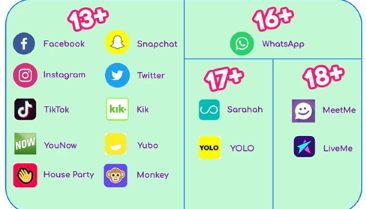ONLINE SAFETY
Online Safety
We are committed to protecting our pupils online by working with National Online Safety. Resources include Parents & Carers courses (presented by Myleene Klass), online video resources and weekly guides covering a huge range of online safety topics.
Resources
At Home
As a parent you’ll know how important the internet is to children – they use it to learn, play, socialise and express themselves. It’s a highly creative place of amazing opportunities. But the technology children use every day can seem a bit daunting and you might worry about the risks your child can face online – such as bullying, contact from strangers or the possibility of them seeing illegal or inappropriate content.
Talking to your child about how they use the internet will help you start to protect your children online and decrease the risks they face. Here are some conversation starter ideas from childnet.com
- Ask your children to tell you about the sites they like to visit and what they enjoy doing online.
- Ask them about how they stay safe online. What tips do they have for you, and where did they learn them? What is OK and not OK to share?
- Ask them if they know where to go for help, where to find the safety advice, privacy settings and how to report or block on the services they use.
- Encourage them to help. Perhaps they can show you how to do something better online or they might have a friend who would benefit from their help and support.
- Think about how you use the internet as a family. What could you do to get more out of the internet together and further enjoy your lives online
- It’s important to remember that the legal age to have an account on most social media – Instagram, Facebook, Youtube, Snapchat – is 13 years old.
Parent Resources
saferinternet.org.uk/advice-centre/parents-and-carers
thinkuknow.co.uk/parents
nspcc.org.uk/keeping-children-safe/online-safety
APPS
Age limits are there to protect children. Here is a useful reminder of the age restrictions of some popular platforms to help parents and carers decide how appropriate they are for a child to access and what level of supervision needs to be in place:
At School
As part of your child’s curriculum and the development of computer skills, we provide access to the internet only in teacher supervised lessons. We strongly believe that the use of the web and email is hugely worthwhile and an essential tool for children as they grow up in the modern world. But because there are always concerns about children having access to undesirable materials, we have taken positive steps to deal with this risk in school. Our school internet access provider operates a filtering system that restricts access to inappropriate materials.
At the start of the school year, each class discusses how we can all stay safe online and the dangers we may face on the internet. Every child in KS2 sign an Acceptable Use Agreement so that we know they have read and understood our school’s rules on staying safe. We also have an Acceptable Use Agreement for our younger children.
Other Useful links
We take safeguarding seriously at North Duffield School below are some further links to resources you may find useful to support your child.
UK Safer Internet Centre- report harmful/upsetting content (https://reportharmfulcontent.com)
Anti Bullying Alliance (https://anti-bullyingalliance.org.uk/tools-information
DFE – Keeping Children Safe Online
Educate Against Hate offers advice on being safe online, how to respond to negative things seen online and tips for keeping your data secure.
Internet matters provides age-specific online safety checklists, guides on how to set parental controls on a range of devices, and a host of practical tips to help children get the most out of their digital world.
Net-aware has support for parents and carers from the NSPCC, including a guide to social networks, apps and games.
Let’s Talk About It has advice for parents and carers to keep children safe from online radicalisation
UK Safer Internet Centre has tips, advice, guides and other resources to help keep children safe online, including parental controls offered by home internet providers and safety tools on social networks and other online services.
Parentzone continues to offer a range of resources on digital resilience and other curriculum areas, useful for parents and teachers.
What parents need to know about TikTok




